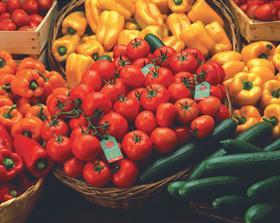
The Fresh Produce Association of the Americas (FPAA) has accused the US government of putting the interests of domestic producers above those of consumers in the forthcoming renegotiation of the North American Free Trade Agreement.
Last month, US Trade Representative Robert Lighthizer published a detailed summary of the US negotiating objectives for the renegotiation of the trade agreement.
It stipulates that the US will “seek a separate domestic industry provision for perishable and seasonal products in AD (antidumping duties) / CVD (countervailing duties) proceedings”.
FPAA said the move would lead to US producers bringing a greater number of lawsuits that would push up prices, reduce availability and provoke a tit-for-tat response from Canada and Mexico.
FPAA president Lance Jungmeyer said this would “cause havoc in the fruit and vegetables markets and be ultimately harmful to consumers”.
“A small group of politically connected, wealthy agribusiness firms from Florida are seeking concessions from the Federal government to effectively subsidise their industry by raising prices, an act that would deprive Americans of affordable fruits and vegetables,” the association said in a statement.
“As a part of the NAFTA renegotiation, they want to change antidumping law to manipulate the free market in order to benefit regional, seasonal perishable agriculture industries.
“If successful, this tactic will result in lawsuits that would raise prices for US consumers, while reducing availability, selection and quality in the supermarket aisle for items such as tomatoes, avocados, bell peppers, watermelons, strawberries and blueberries, just to name a few.”
The FPAA added that in a time of rampant obesity and rising healthcare costs, such an anti-market approach would hit Americans in the pocketbooks when they can least afford it.
“Pursuing such trade protection through increased litigation will also be at the cost of US exporters when similar “seasonal suits” are brought by Canada and Mexico,” the association said.
The association claimed any action to limit imports via regional, seasonal perishable tariffs would raise consumer prices dramatically. It cited a study from AC Nielsen/Perishables Group showing that if Mexican tomato supplies were cut in half in the December-May window, it would result in consumer prices rising from an average of US$2.16 per lb to US$3.31 per lb.
In one scenario, which analysed the possibility of Mexican tomatoes being excluded altogether, Dr Tim Richards, Morrison Chair professor of agribusiness at Arizona State University, said: “we found that if Mexican imports are excluded from the US market, retail prices during the December-May timeframe can be expected to rise by 97.9 per cent for hothouse round, 96.9 per cent for hothouse vine, 61.3 per cent for snacking, 217.2 per cent for Roma and 52.1 per cent for field tomatoes”.



